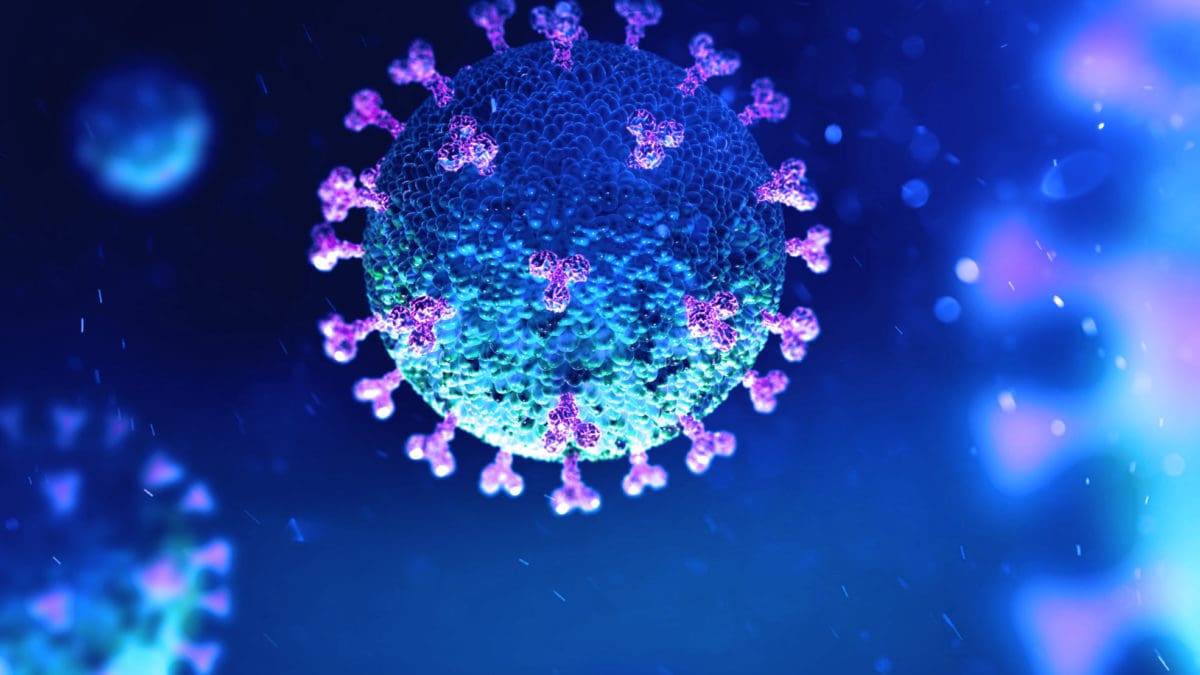People’s behaviour and a belief in science are turning the tide on COVID-19


The graph is heading in the right direction. The trend shows that cases of COVID-19 are declining. We are getting the virus under control – at least for now. We cannot rule out future spikes and we may well have to learn to live with the disease. Meanwhile, biopharmaceutical innovators, working with academia, health services and public research institutes, are making a big difference in three key areas: science, supply and support.
If there is be a breakthrough on vaccines or treatments to prevent or cure the virus, it will come through science. Collaborative research is our best chance of stopping the disease. Meanwhile, manufacturing sites are operating at full tilt, with changes made to complex supply chains so that patients still get their medicines. While all that is happening, the industry is donating funding, expertise, treatments and time to charities, hospitals, patient groups, voluntary organisations and the health authorities.
We have tried to tell some of that story through a new series of user-generated videos and social media assets that capture the industry’s response to the pandemic. Our first thoughts, though, are with everyone affected by COVID-19 – the families and friends of those who have died, the people who have been sick, and the workers who have lost jobs and had their incomes cut. The social and economic toll of the disease will last a long time. But there is hope and there will be healing.
Around the world, there are hundreds of clinical trials under way for potential treatments and vaccines. Experts say there are 133 treatments in development for potential use in the fight against COVID-19. There are eight candidate vaccines in clinical trials and a further 82 in pre-clinical stages of development. In Europe, this progress is underpinned by the EU’s robust intellectual property framework – the scaffolding for medicines innovation. It has enabled bold investments in new medicines and many of them are now being tested for their possible use in COVID-19 cases.
It is hoped that all this collaborative research, involving industry, governments and research institutes, will yield a breakthrough soon. Already, some experts predict that it will take a year to 18 months to develop, test, approve and manufacture a vaccine. That would be a record. Usually, vaccines take years, if not decades, to develop.
This time, though, there are some accelerants in the process. The complete genome sequence of COVID-19 was quickly identified and shared. As well as that headstart, scientists know more through decades of experience with similar viruses such as MERS, SARS, influenza, HIV and Hepatitis C. The industry has invested billions in technologies that have dramatically shortened the time it takes to decode viruses and develop potential vaccines.
Companies are now better able to manufacture vaccines and treatments at speed and scale. When breakthroughs come that are safe and effective, they must be affordable for healthcare systems. They will need to be distributed and administered globally too. Every country will want a vaccine. Billions of doses daily will be needed to vaccinate the world. So while industry, governments and public institutions are partnering on research efforts now, they will need to collaborate even closer on the distribution and administration plan for vaccines and treatments. Now is the time to start those conversations.
The search for vaccines and cures dominates the conversation around the global biopharmceutical industry. Less profiled is the difference companies are making at community level where they are helping local hospitals, charities and voluntary organisations to respond to the pandemic. This is social purpose at a time when it is most needed.
Johnson & Johnson is working with the South/South-West Hospital Group on a return-to-normal-care plan that could help some 300,000 patients. Novartis, Eli Lilly and Roche are funding or supplying personal protection equipment to hospitals. Reckitt Benckiser has donated 40,000 anti-bacterial products to the HSE for distribution to hospitals and nursing homes. Bayer is donating energy supplements to frontline healthcare workers and partnering with the Irish Heart Foundation on a follow-up service for stroke patients. Boehringer Ingelheim is making immediate impact funding available to charity partners and giving employees 10 days paid leave for voluntary relief efforts. Roche employees are volunteering as contact tracers, as well as supplying personal protection equipment to local hospitals. Ipsen is providing resources to help cancer patients manage their own care at home. There are many other examples.
All of this is progress. But it must not detract from other strands of patient care. It is troubling that clinical trials – the engine room for new treatments – have been stalled by COVID-19. As well as that, there are signs that non-COVID-19 care has dropped dramatically. Some patients, many of them with cancer, heart disease or stroke conditions, are not going to hospital either because they are afraid or their procedures have been cancelled. It is vital that patients attend for appointments when they are available and that the health system has a plan for the surge in waiting lists in the coming months.
COVID-19 could be one of the turning points of the 21st century, even more influential than the 9/11 attacks in New York or the global financial crisis. The event itself is one thing; our response to it, together, is another. It casts the biopharmaceutical industry in a new light – the transformative potential of science, the essential nature of medicines manufacturing and supply, and the reach of small but important gestures of social support. This not over yet; it’s really only starting. But there has scarcely been a time for the biopharmaceutical industry to be more relevant and to have such a shaping influence on global events. It must use this time well.
Bernard Mallee is Director of Communications and Advocacy at the Irish Pharmaceutical Healthcare Association.
ENDS


